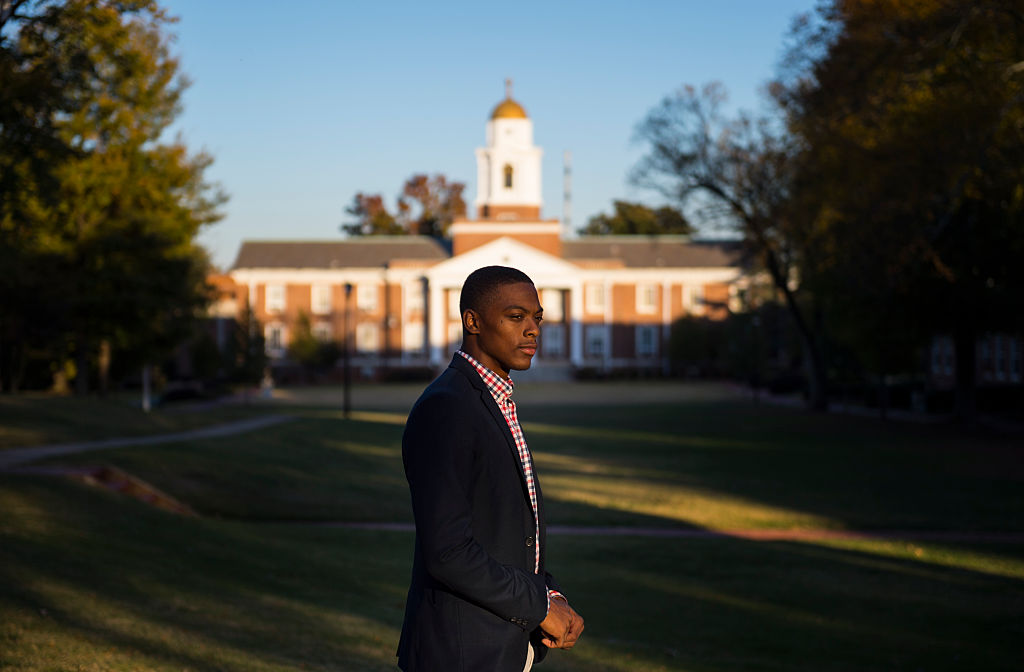Legacy Admissions: Why HBCU Family Ties Are Different From PWIs’
Source: The Washington Post / Getty
The U.S. Department of Education has launched a civil rights investigation into Harvard’s legacy admissions, just one month after the Supreme Court struck down affirmative action. The Supreme Court decision was in the context of predominately white institutions (PWIs,), but it could also affect historically Black colleges and universities (HBCUs) even though the dynamics between the two are far from the same.
On Monday, attorney Michael A. Kippins of the department’s civil rights office issued a notification to the Lawyers For Civil Rights, a nonprofit organization based in Boston, that it would be investigating the group’s complaint filed earlier this month. In the complaint, filed July 3, members of the civil rights organization claimed that legacy admissions at Harvard “discriminate” against students of color by giving white children of alumni a leg up in the undergraduate admissions process. The complaint was filed on behalf of Black and Latino community members in New England, alleging that Harvard’s admissions system violated the Civil Rights Act.
Hammering down on the allegation, the group claimed that students with legacy ties to the PWI school are “seven times more likely to be admitted to Harvard.” They argued that around 70% of legacy students were white and “nearly a third” of those with ties to Harvard made up a class at the institution.
“For the Class of 2019, about 28% of the class were legacies with a parent or other relative who went to Harvard,” the complaint noted. “Qualified and highly deserving applicants of color are harmed as a result, as admissions slots are given instead to the overwhelmingly white applicants who benefit from Harvard’s legacy and donor preferences.”
The group also argued that the unfair practice often gives “preferential treatment” to white applicants and is not based on their educational merit. “It is an unfair and unearned benefit that is conferred solely based on the family that the applicant is born into. This custom, pattern, and practice is exclusionary and discriminatory. It severely disadvantages and harms applicants of color,” the group added.
In a statement to The Associated Press, a spokesperson for Harvard said the university would be reviewing its admissions policies to ensure fairness and compliance with the law since the Supreme Court ruling on affirmative action earlier this month.
“As this work continues, and moving forward, Harvard remains dedicated to opening doors to opportunity and to redoubling our efforts to encourage students from many different backgrounds to apply for admission,” the spokesperson added.
Do legacy Admissions work the same at HBCUs? Some experts say no way – it’s all about education.
Jasmine Harris, an associate professor of African American studies at the University of Texas at San Antonio, believes legacy admissions at HBCUs do not work the same as the faulty processes at PWIs.
The professor told the New York Times that the “elite” practice was created with the intent to exclude students of color.
“While the policy is meant in its modern conception to support the familial connection that folks feel to these institutions, that wasn’t the initial premise,” she said. “Ivy Leagues were the first to institute legacy admission policies and that was specifically to keep out Jewish people and immigrants of all kinds.”
Chelsea Holley, the director of admissions at Spelman College, believes that legacy admissions are a way for Black students to preserve their legacy and tough historical roots. Black students were faced with during the mid-1800s and early 1900s. Many were denied the right to read and write, so students who have close ties to Spelman see legacy admissions as a way to keep education alive in their family tree.
“When we talk about legacies in the African American community, we’re still only one or two generations removed from people who only had access to a grade-school education. So, this idea of privilege being passed down doesn’t ring the same for our schools,” she said.
Theodore “Tedd” Alexander III, a Morehouse College alumni, has sent all three of his sons to the all-male institution as a way to keep the tradition going.
For Alexander, the school played a vital role in his understanding of what it meant to be Black and helped to shape his identity.
The same now rings true for his son Julian Alexander. The 25-year-old told NYT that before he went to Morehouse, he had never experienced a majority Black environment, other than in sports.
“In my high school, you kind of felt like a number,” the young student said of his predominantly white high school. “At Morehouse, when you get on campus, they say there’s a crown put over your head that you need to grow into. Morehouse definitely expects big things from us, and so we just try our best to grow into what we’re supposed to become.”
SEE ALSO:
College Legacy Admissions: Why Can Family Ties Be Considered But Not Race?
‘Affirmative Action’ For Wealthy, White Students: Why Colleges’ Legacy Admissions Must End Now
The post Legacy Admissions: Why HBCU Family Ties Are Different From PWIs’ appeared first on NewsOne.

